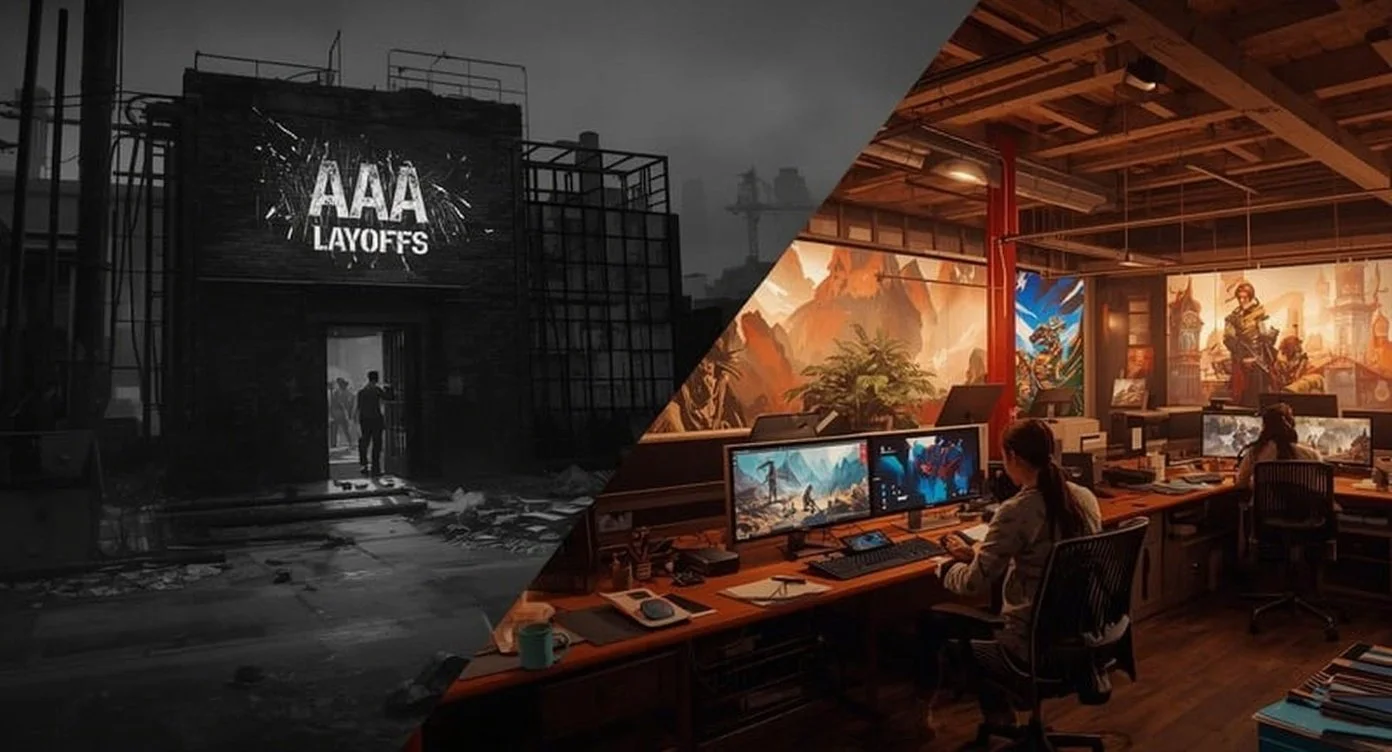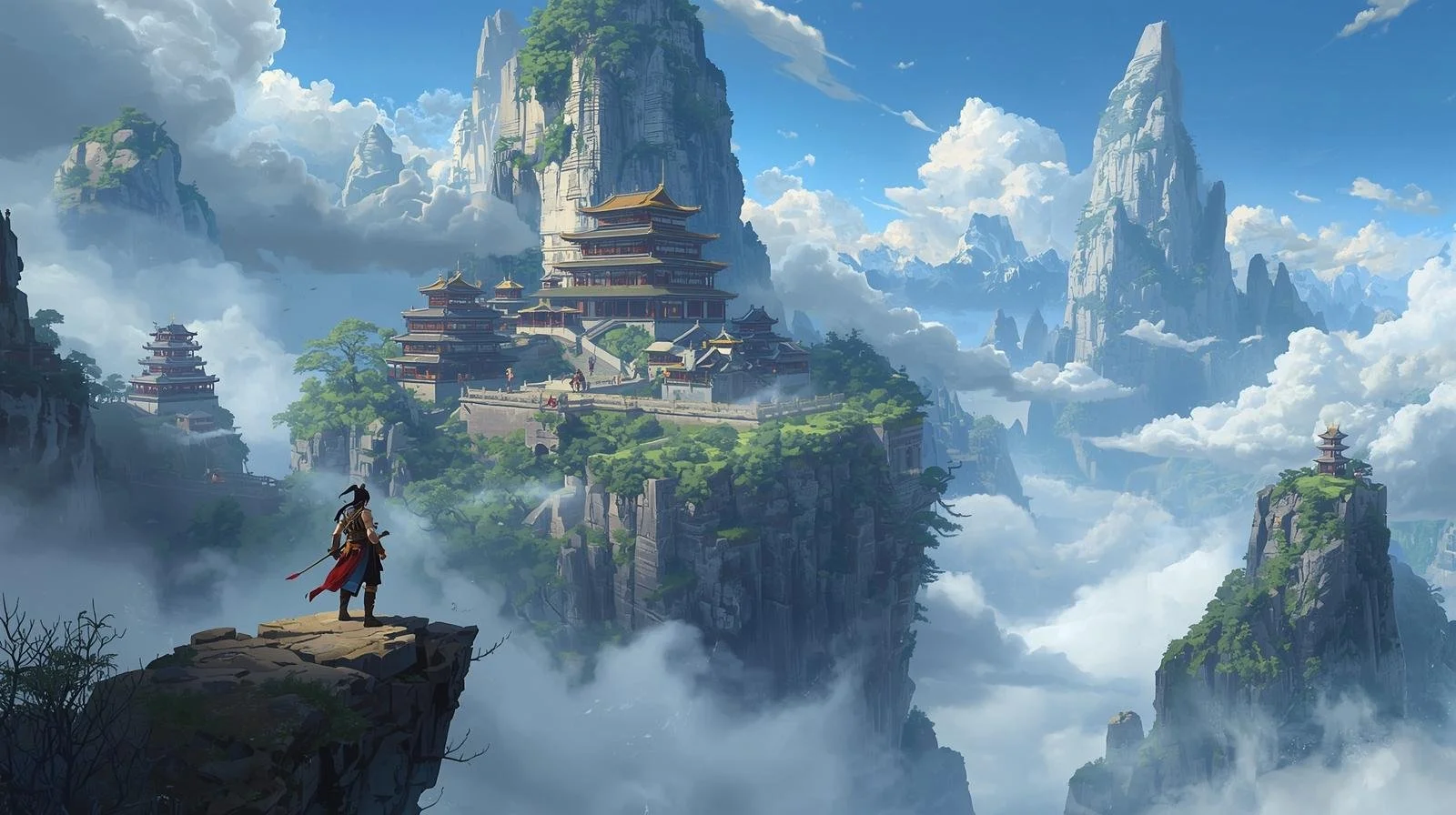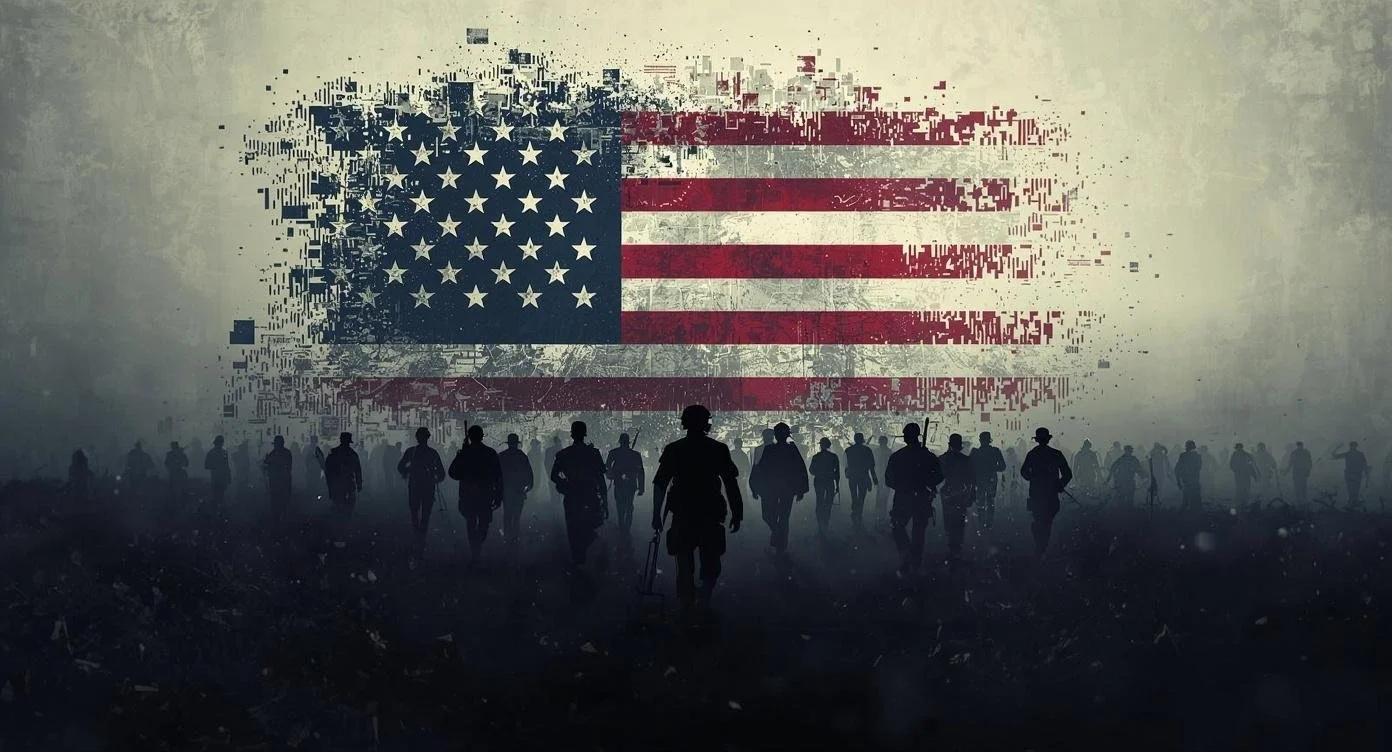The Collapse of Western Gaming: What the Industry Reveals About Capitalism, Creativity, and America’s Future
The collapse of western AAA Game Studios contrast the Rise of the East!
For most people, the video game industry is entertainment.
For me, it’s something else entirely.
It is a laboratory where I can watch capitalism, creativity, exploitation, and technology collide in real time. It’s where I see—clearly and brutally—how our economic system treats human beings, art, and innovation.
Right now, that lab is sounding an alarm:
The Western games industry is collapsing creatively and structurally.
The East is rising, producing bold, culturally rich, visually stunning experiences.
And AI is about to deepen the divide between systems that value people and systems that only value profit.
Games like Where Winds Meet feel alive to me in a way most Western AAA titles haven’t in years. Meanwhile, franchises like Call of Duty: Black Ops 7 already feel exhausted before they even land. What used to feel like milestones now feels like corporate maintenance.
This isn’t an accident. It’s a reflection of how the broader Western system operates.
The West Didn’t Run Out of Talent. It Ran Out of Freedom.
I don’t believe Western studios suddenly forgot how to make good games. I believe they lost the conditions that allow creativity to breathe.
For over a decade, Western AAA development has been governed by one logic:
Minimize risk, maximize profit, no matter the human cost.
That logic produces a predictable cycle:
Inflate team sizes into the hundreds.
Inflate budgets until the project becomes too big to experiment.
Kill risk at the concept stage.
Push sequels, remakes, safe formulas.
Crunch the workforce to hit investor-driven deadlines.
Ship a game that feels familiar, monetized, and safe.
Announce mass layoffs right after launch.
This isn’t a “bad quarter.” It is structural extraction.
I watch studios spend eight to ten years developing a flagship title with a huge team. Then, as soon as the product is out the door, I watch those same workers—who poured their lives and health into it—get laid off in waves.
The Western games industry still has brilliant people. But they are trapped in a system that treats them as disposable assets, not stewards of culture.
The East Is Rising—Not by Magic, but by Design
When I look at what’s happening in China, Korea, and other parts of Asia, I don’t see perfection. I see a different set of priorities.
Games like Where Winds Meet and Black Myth: Wukong aren’t just technical flexes; they’re cultural statements. They draw from mythology, history, and a desire to tell stories that matter to their creators and communities.
What stands out to me about many Eastern studios is this:
They still treat games as cultural exports, not just financial assets.
They allow myth, folklore, and national identity to guide creative vision.
Their structures (while far from ideal) haven’t yet crushed creativity beneath layers of corporate middle management to the same extent.
They are more willing to take visual and narrative risks, trusting that the audience will follow.
While Western publishers ask, “What’s the safest bet for Q4?”
Eastern studios often ask, “What kind of world do we want to bring to life?”
The East is showing what happens when a system still allows vision to drive games, not just spreadsheets.
AI: Weapon or Tool, Depending on Who Holds It
AI is about to transform the entire industry.
But what it becomes depends on who controls it and what their values are.
Under the current Western corporate mindset, AI is treated like:
a cost-cutting tool
a justification for smaller teams
a way to “streamline” production by replacing human labor
an excuse to lay people off while maintaining executive bonuses
Under a more creative-first mindset, AI could be:
a world-building multiplier that helps small teams realize massive visions
a narrative sandbox that allows complex branching stories
a way to prototype faster while keeping humans firmly in charge of the emotional core
a tool that invites more people, not fewer, into the design process
The technology itself is neutral. The economic system that wields it is not.
In other words:
AI is not the villain.
AI under unrestrained capitalism is.
Games Show Me the Truth About the American Economy
I came to the United States chasing a vision: a country where hard work, creativity, and service meant something. I served in the U.S. Marine Corps. I believed in the idea of America.
The video game industry has been one of the clearest places where that illusion has broken.
Because games require:
massive collaboration
years of investment
high levels of skill
emotional storytelling
advanced technology
And yet, the way the industry behaves exposes the core logic of the system we live in.
I see:
Boom-and-bust cycles where workers pay the price and executives don’t.
Consolidation as big players swallow studios and IPs to tighten control.
Crunch culture treated as normal, even noble.
Passion weaponized to get people to accept abuse.
Successful studios killed after “successful” releases because profit targets weren’t hit hard enough.
This is not unique to games.
Games simply let me see the pattern more clearly.
The same logic shows up in healthcare, housing, education, and politics: the dreams of the many converted into wealth for the few.
My Sorrow Isn’t About Losing a Game Industry. It’s About Losing a Country I Believed In.
As an immigrant from the Dominican Republic, I came here believing the story America told about itself.
As a Marine, I gave years of my life to that story.
Now, watching the structures of this country up close—from war to policy to the economy—I see something else:
a government captured by corporate interests
a media environment that keeps people divided and misinformed
a health system that profits from sickness
an education system that underfunds critical thinking
an economy that thrives on burnout, debt, and precarity
The collapse of Western gaming is not separate from this.
It is a cultural echo of a deeper political and economic decline.
What hurts is not just watching studios die.
What hurts is recognizing that the promise that brought me here—the promise that motivated my service—was never structurally protected. It was always vulnerable to being hollowed out by money and power.
A U.S. flag fading into glitching pixels, with silhouettes of workers and soldiers walking away, somber but determined.
The One Thing They Didn’t Fully Anticipate: Us
For centuries, elites controlled:
newspapers
radio
TV
publishing
education
political parties
Today, they still control a lot—but they don’t fully control the internet.
For all its misinformation, toxicity, and chaos, the internet also did something they can’t reverse:
It gave regular people the ability to:
organize
analyze
publish
connect
build solidarity
challenge narratives
Gamers know this better than anyone. We form alliances with strangers. We coordinate. We share strategies. We expose bad actors. We create content that reaches millions without needing a network executive’s permission.
The same force that can turn a broken game into a global meme can also turn a broken system into a global conversation.
That’s where my hope lives.
Where EFI Fits Into All This
The Equitable Future Initiative (EFI) is my attempt to turn all of this—this anger, this grief, this clarity—into a blueprint.
When I look at Western gaming, I see what happens when:
labor has no real power
profit is the only goal
creativity is subordinate to shareholders
technology is used against people instead of for them
EFI is my answer to that.
EFI imagines:
worker-led governance instead of corporate rule
a public industry model where labor and community define purpose
creative freedom supported by security in basic needs
digital democracy tools that let people co-govern, not just vote every few years
an economy that isn’t built on scarcity and fear, but on abundance and participation
The game industry is a warning.
EFI is my proposal for a response.
The Future I’m Choosing
I no longer believe America will be saved by its myths.
If it has a future worth living in, it will be because people—workers, creators, immigrants, veterans, parents, communities—decide to build new systems instead of begging the old ones to be kinder.
The collapse of Western gaming is not just a story about entertainment.
It is a mirror being held up to an empire.
And in that reflection, I see:
the end of one way of organizing society
the failure of an economic model that treats humans as fuel
the possibility of something radically better
I can’t unsee what I’ve seen.
So I choose to build.
Through EFI, through writing, through organizing, through conversation, and, yes, through the lens of video games, I’m committing my life to imagining and fighting for an equitable, communal, joyful future.
The industry is showing us that the old way is breaking.
The question now isn’t whether a new world is coming.
The question is: who will it serve?
I know what side I’m on.


